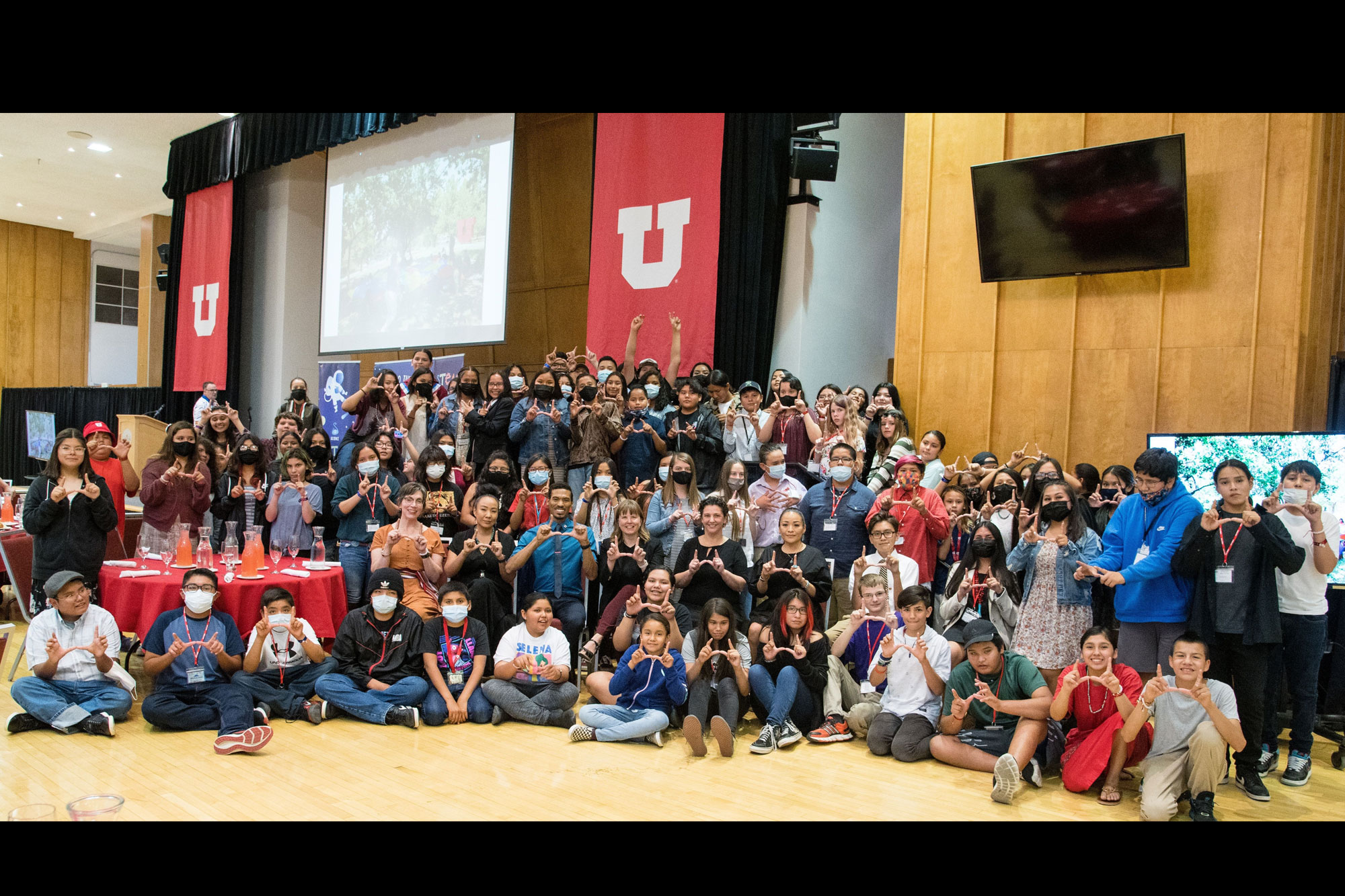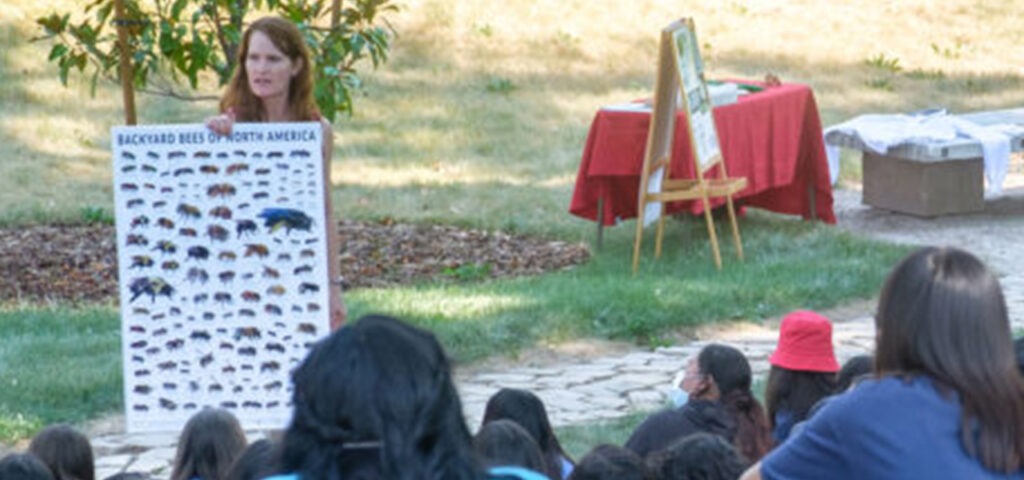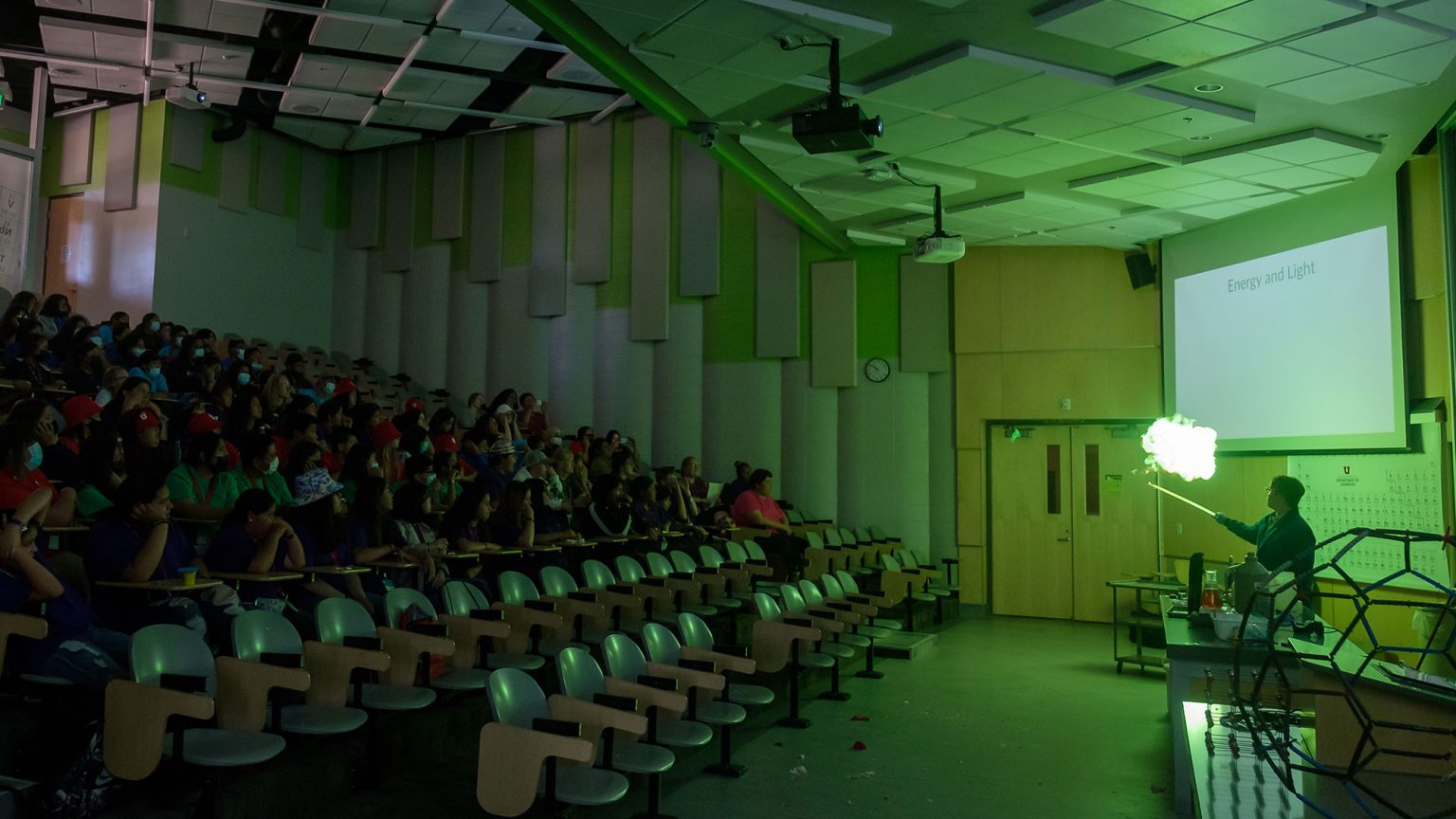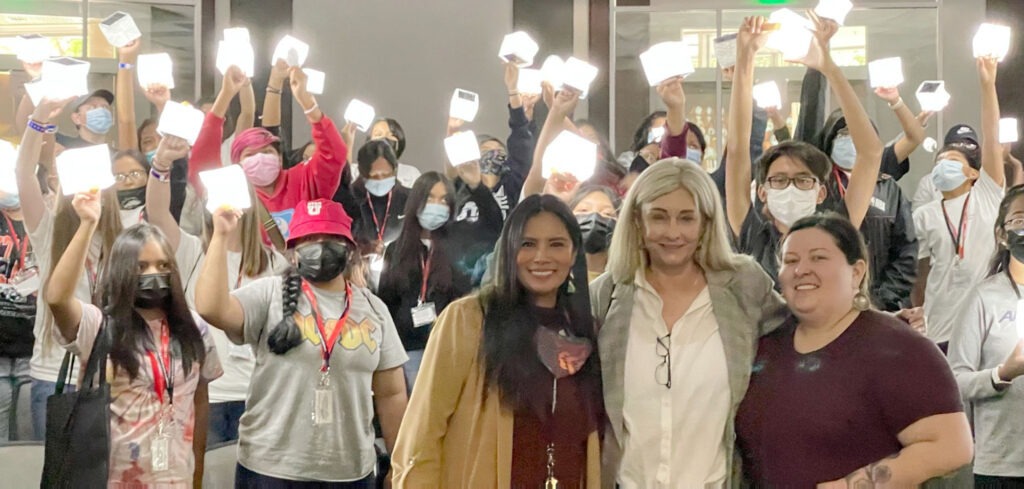
On July 14-16, 2021, students of the American Indian Services (AIS) Pre-Freshman Engineering Program (AIS PREP) came to the University of Utah to celebrate the completion of their 2021 AIS PREP, co-hosted by the College of Science, including the School of Biological Sciences.
AIS PREP is a free program for Native American students to take advanced science, technology, engineering and mathematics (STEM) courses for six weeks for three consecutive summers. At the end of the program, the students earn scholarships to any higher education institution that they choose and continue to receive financial assistance. The 2021 AIS PREP group included 113 students from different Native American tribes: Navajo (Diné), Hopi, Oglala Sioux (Lakota), Shoshone/Bannock, Zuni, Crow, Paiute, and Cheyenne. AIS PREP is focused on making the curriculum culturally sensitive to the Native American students they serve. They bring a unique opportunity to keep the students close to their homes.
“We’re the only non-profit that has taken on such a big program like this. Some of these tribal communities are in rural areas—resources are scarce,” said Meredith Little Lam, project and program manager at AIS and AIS scholarship alumnus. “The whole point of AIS PREP is that we want to make sure we give our Native American students STEM resources that will allow them to succeed in high school.”
The students traveled to the U on July 14 to stay in campus dorms, meet PREP students from other AIS PREP sites, and hear presentations from U staff and College of Science faculty to celebrate the completion of the program. The week ended with a keynote address from the architect, inventor and entrepreneur Alice Min Soo Chun, during which she shared her inspiring story of changing the world by inventing a durable, portable, collapsible solar light.

“These students come from some of the poorest reservations in the United States. This really is a trip of a lifetime for them,” said Little Lam, “Some come from areas where there’s no running water, no electricity. We live in the United States and it’s just appalling that we can’t figure out ways to help these communities. And so, I think that this is a proactive way of getting these students involved in STEM to let them know, ‘You can change your tribal communities. You have it within yourself to be that leader.’”
“The College of Science is honored to have taken part in celebrating this incredible accomplishment of completing AIS PREP,” said Cassie Slattery, director of special projects of the college. “We would be lucky to have any one of these exceptional students pursue science here at the U.”
Anyone can train to be a scientist
On Thursday, the students learned about a diverse array of topics from speakers, including Amy Sibul of the School of Biological Sciences, who addressed the students on the subject of bees and other pollinators. “The students that visited campus with the AIS PREP program were both highly curious and knowledgeable about bees. They posed excellent questions and shared relevant stories about their experiences with bees. It was a wonderful experience for me as an educator to be part of this program, and I’m sure I’ll be seeing some of these students at the UofU as incoming freshman into the College of Science.”
Sibul is the Faculty Advisor to the University of Utah Beekeepers’ Association. This student organization maintains honeybee hives and native bee habitat on campus and hosts pollinator awareness events, public school classroom visits, and lectures on campus to educate people about the importance of bees and other pollinators. A pollinator Conservation Garden was completed on campus in 2019 and serves as both pollinator habitat and a living lab for student research projects.
Sibul is also Committee Chair of the University of Utah Bee Campus USA Committee, a Xerces Society program designed to marshal the strengths of educational campuses for the benefit of pollinators. In 2020, the U joined many other cities and campuses across the country united in improving their landscapes for pollinators. “We’re so happy that the University of Utah is recognized for this work and can serve as a role model for including pollinators in the planning of urban spaces and infrastructure.” Modeling for potential young scientists is a big part of the Bee Campus program, and participants at the AIS PREP event were no exception.
An Explosive Presentation
Bees were not the only thing on the agenda. One of the day’s highlights was an explosive presentation from chemist Ryan Stolley. He threw balls of fire, inhaled sulfur hexafluoride to give himself a funny low voice, and had the students freeze flowers with liquid nitrogen and smash them to bits. In between the chemistry magic, Stolley shared his personal story.
 “I was a Native American student, of the Choctaw Nation of Oklahoma. When I was young, school was not my focus—I was just getting into trouble. But I got a lucky break and met some chemists who really changed my life,” said Stolley. “Native students are severely underrepresented in STEM disciplines. I love any opportunity to show them that it’s possible to pursue science. I mean, I’m covered in tattoos. Anybody can be a scientist. You just have to be curious.”
“I was a Native American student, of the Choctaw Nation of Oklahoma. When I was young, school was not my focus—I was just getting into trouble. But I got a lucky break and met some chemists who really changed my life,” said Stolley. “Native students are severely underrepresented in STEM disciplines. I love any opportunity to show them that it’s possible to pursue science. I mean, I’m covered in tattoos. Anybody can be a scientist. You just have to be curious.”
Stolley spoke to the students about attending Fort Lewis College, a university in Colorado that offers free tuition to Native American students. The assistant professor in the Department of Chemistry is also part owner of a local chemical company.
Part of what my company does is to make products that help clean contaminants out of water across the Colorado Plateau, especially on Tribal lands,” Stolley said, “I want to get these students thinking about how we can take our science and turn it around to help our Native communities.”
Creating positive memories on campus is part of how AIS PREP helps plant the seed to pursue higher education.

Alice Min Soo Chun was the perfect choice as the keynote speaker for the event. Founder and CEO of Solight Designs, Inc., Chun invented the Solar Puff, a portable, collapsible, self-inflating light powered by the sun.
“Every problem is an opportunity in disguise,” Chun, who is Korean and a professor at Columbia University, told the AIS PREP graduates. “By doing research and observing, anybody can do this. I used to get beat up a lot for looking different. So, I became a fighter—not with my fists, but with the light of my heart and mind. You are all light warriors,” Chun said. “My hope is that you leave understanding how powerful you are and that you have the ability to change the world.”
